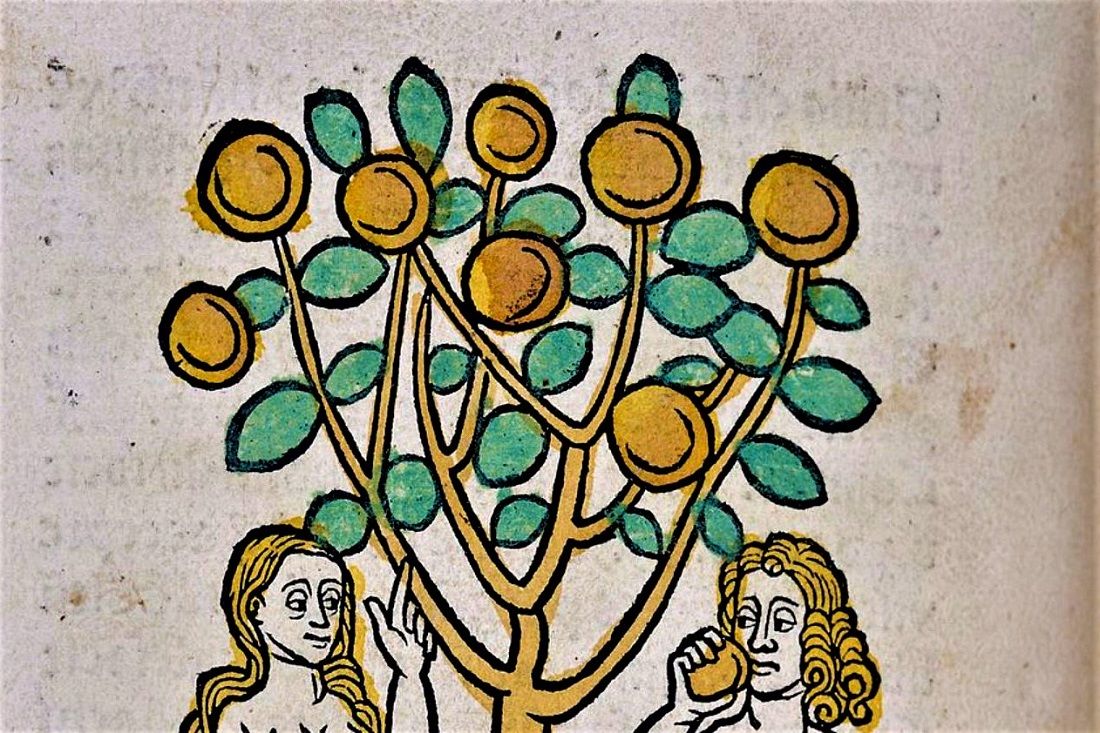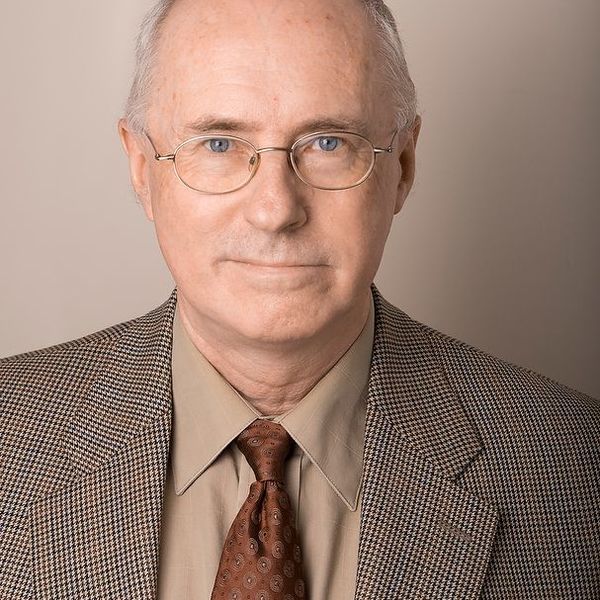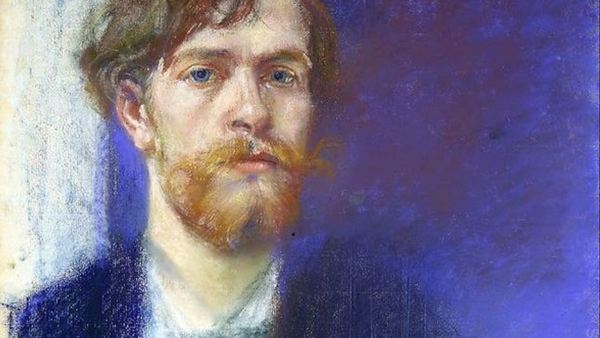The discovery and publication of John Rawls’s senior thesis can be compared to the impact of the early writings of Karl Marx. It was only with the appearance of the latter that readers could gain an appreciation of the humanist roots of Marxian thought that, in its mature formulation, was centered more narrowly on economic theory. A similar pattern applies to the ever more rigorous elaborations of Rawls’s A Theory of Justice that, despite their prolixity, never quite capture the inspiration from which his thought springs.
The relatively recent publication of A Brief Inquiry into the Meaning of Sin and Faith[1] enables us to glimpse the long submerged origin in one of its most touchingly unguarded moments. We are led into the inner hidden Rawls, and begin to see a whole new way of perceiving this emblematic figure of contemporary liberal political thought. Of course this is not to suggest that the “discoverer,” Eric Gregory, or the editor, Thomas Nagel, have let us in on a secret that ought not to have seen the light of day.[2] A senior thesis resting within the publicly accessible space of the Princeton library is hardly a private document, even if many Rawlsians might have preferred it remain within the darkness of the unread. It certainly complicates the notion of secular public reason for it to be reminded of its genesis within Christian theology, although that is equally a complication from the perspective of Christian theology as well. Yet it is not as if the affinity of Rawls’s philosophy with a deeper spiritual strain was unknown. That was visible to any careful reader of the texts.[3] What is new in the Brief Inquiry is the revelation of just how many of the main parameters of his philosophical thought were worked out within a theological-personalist horizon.
This was something of which Rawls himself remained aware and in which he remained deeply interested. The accompanying document, “On My Religion,” a private reflection on his own religious convictions from 1997 (at the latest), makes clear his continuing deep engagement with the Christian beginnings from which his odyssey had set forth. This too provides a fascinating perspective, comparable only to what we might have learned if the older Marx had penned a reflection “On My Judaism.” Here Rawls shows that even what is left behind is never really left behind for, even when he concedes that he is no longer a Christian in any conventional sense, the question of his relationship to faith remains ineluctable. The invocation of Jean Bodin’s, also unpublished (until the 19th century), Heptaplomeres: Colloquium of the Seven about the Secrets of the Sublime (1588), adds only a further layer of fascination to the unfolding mystery.
Rawls singles out this conversation between representatives of different religions and none at all as most closely resembling his political liberalism. The first aspect he notes is that Bodin arrived at toleration, not on the basis of skepticism, but on the basis of faith: “Although he recognized the political importance of toleration, and held that the state should always uphold it, his belief in toleration was religious and not only political” (266). This observation leads Rawls to question the extent to which liberal politics still requires a foundation in faith. Not surprisingly, he concludes that even faith in the existence of God is no longer necessary for us to sustain the principles of mutual respect toward fellow creatures made in the divine image. “For my part,” Rawls insists, “I don’t see how it is possible that the content and validity of reason should be affected by whether God exists or not, thinking of God as a being with will” (268). Quite apart from the naiveté of this formulation (“whether God exists or not”), what is most striking is that Rawls is determined to hold onto the reasonableness of God even if he no longer holds onto God. It is this touching faith in God, when there is no “God,” that attests to the remarkable spiritual journey Rawls navigated over a philosophic lifetime.
Beginning with a conventionally Christian upbringing, it was only in his last two years at Princeton that he “became deeply concerned about theology and its doctrines” (261). This was the time when he considered going into the seminary but decided to wait until the war was over, characteristically, out of a sense of duty toward friends and classmates who had already signed up and because “I could not convince myself that my motives were sincere.” It was only at the end of the war that his faith underwent a shattering change that marked not so much a loss, as the realization that he was “no longer orthodox.” Rawls recounts three incidents that precipitated this crisis. There was the Lutheran pastor who declared that God aimed American bullets at the Japanese but protected the former from the latter; then the incident in which another man, appropriately named Deacon, had been killed in his place merely because Rawls had had the good fortune to be selected as a blood donor; and, finally, there was the larger questioning of divine justice precipitated by the widespread realization of the scale of the Holocaust.
Cumulatively they amounted to an assault on the very idea of divine justice: “To interpret history as expressing God’s will, God’s will must accord with the most basic ideas of justice as we know them. For what else can the most basic justice be? Thus, I soon came to reject the idea of the supremacy of the divine will as also hideous and evil” (263). It is not difficult to discern the unity of these incidents as defining the core preoccupation of Rawls’s professional life: justice as fairness. There is more than a hint of revolt against the divine injustice that now must be surpassed by a more humane dispensation of justice. That might well have been the route of Karl Marx, but it was not to be that of John Rawls or, by extension, the liberal standard-bearers that take their lead from him. Instead, Rawls and liberal societies return, like him, to the question of their relationship to religion.
In this sense only the opening statement of this remarkable testament fails to hit the mark. “My religion,” Rawls begins, “is of interest only to me,” although he left his thoughts about it in a way that was accessible to family and friends. Could it be that he suspected that his religion was of interest and of relevance to a far wider circle for whom he functioned as a preeminent theoretical voice? The very exercise of this autobiographical stocktaking seems to suggest a lacuna within the publicly elaborated accounts of justice. Perhaps there lay an injustice at the heart of A Theory of Justice? A debt that had not quite been repaid?
Five years before his death we encounter Rawls asking himself whether he has given God all that is his due. Such a meditation could only assume the form of a letter to oneself. Or, perhaps it is a letter to God? At any rate it was not written for publication, even though it was available for publication. The delete button could have been pressed at any time. Perhaps it is a testament to Rawls’s own remarkable sense of justice that he never sought to suppress what could not be transacted within the parameters of the public discourse he had constructed. How could the thinker, who had explained so convincingly why no appeal to metaphysical or religious worldviews was permissible within the public square, deal with his own lingering entanglement with such “worldviews”?
It is not that the theological resonances of A Theory of Justice were ever disguised. No Heideggerian erasure attempts to smooth out the inconsistencies of liberal philosophical thought. Complications are allowed to stand, and nowhere more poignantly than by the author who must write privately to himself about a “religion” for which he can no longer find a place within his public discourse. A consistent liberal would have no need to write about his religion, having firmly closed the door on all its confounding perplexities. But Rawls was no Rawlsian. He could not let go of what had after all been the well-spring from which his thought had flowed. This is the significance of the publication of the unnoticed thesis by a brilliant deeply sensitive Princeton undergrad.
Without the simultaneous appearance of “On My Religion” the thesis could be given far less weight in an overall assessment. We might well have been inclined to regard it as a closed chapter to which he never looked back. But the later reflection demonstrates that the older Rawls did look back, prompted, not by nostalgia, but by a profound philosophical need to become clear about the character of his own thought. In undertaking our own review of that pathway we are perhaps best guided by one of the most striking cautions that Rawls issues to himself in the self-reflection. After noting that his religious views changed in 1945 he concedes his incapacity to comprehend the shift in any definitive way: “I don’t profess to understand at all why my beliefs changed, or believe it is possible fully to comprehend such changes. We can record what happened, tell stories and make guesses, but they must be taken as such. There may be something in them, but probably not” (261). Rawls was sufficiently self-perceptive to recognize that there were limits to self-perception. Yet those limits were never absolute; their boundaries could be pushed back to catch a glimpse of what had not been glimpsed before.
In this sense Rawls’s exercise in self-interpretation is no different from the task of interpretation in general. We are continually on the track of the inspiration from which a text arose, a source that, because it lies beyond the text, can never be included within it, no matter how extended the latter becomes. Try as he or she might, the author can never include the point of view from which the work has emanated. Somehow its definitive formulation, its drive for self-expression, identical with the author him or herself, ever escapes capture. We may not reach the real Rawls in the undergraduate thesis, but we do we catch something of the person who is far less visible in the writings of the professional philosopher. It brings us close to the motivating experience, even if such a core permanently eludes us, of the theory of justice.
[1] Rawls, A Brief Inquiry Into the Meaning of Sin and Faith, with “On My Religion”, (ed.) Thomas Nagel, with commentaries by Joshua Cohen and Thomas Nagel, and Robert Merrihew Adams (Cambridge: Harvard University Press, 2009).
[2] Eric Gregory has written his own considerable reflection on the event in “Before the Original Position: The Neo-Orthodox Theology of the Young John Rawls,” Journal of Religious Ethics 35.2 (2007): 179-206.
[3] Cohen and Nagel concede as much in their Introduction, 5. I take a minor satisfaction in finding my own reading of the deeply spiritual strain of Rawls confirmed. See The Growth of the Liberal Soul (Columbia: University of Missouri Press, 1997), especially 51-53.


